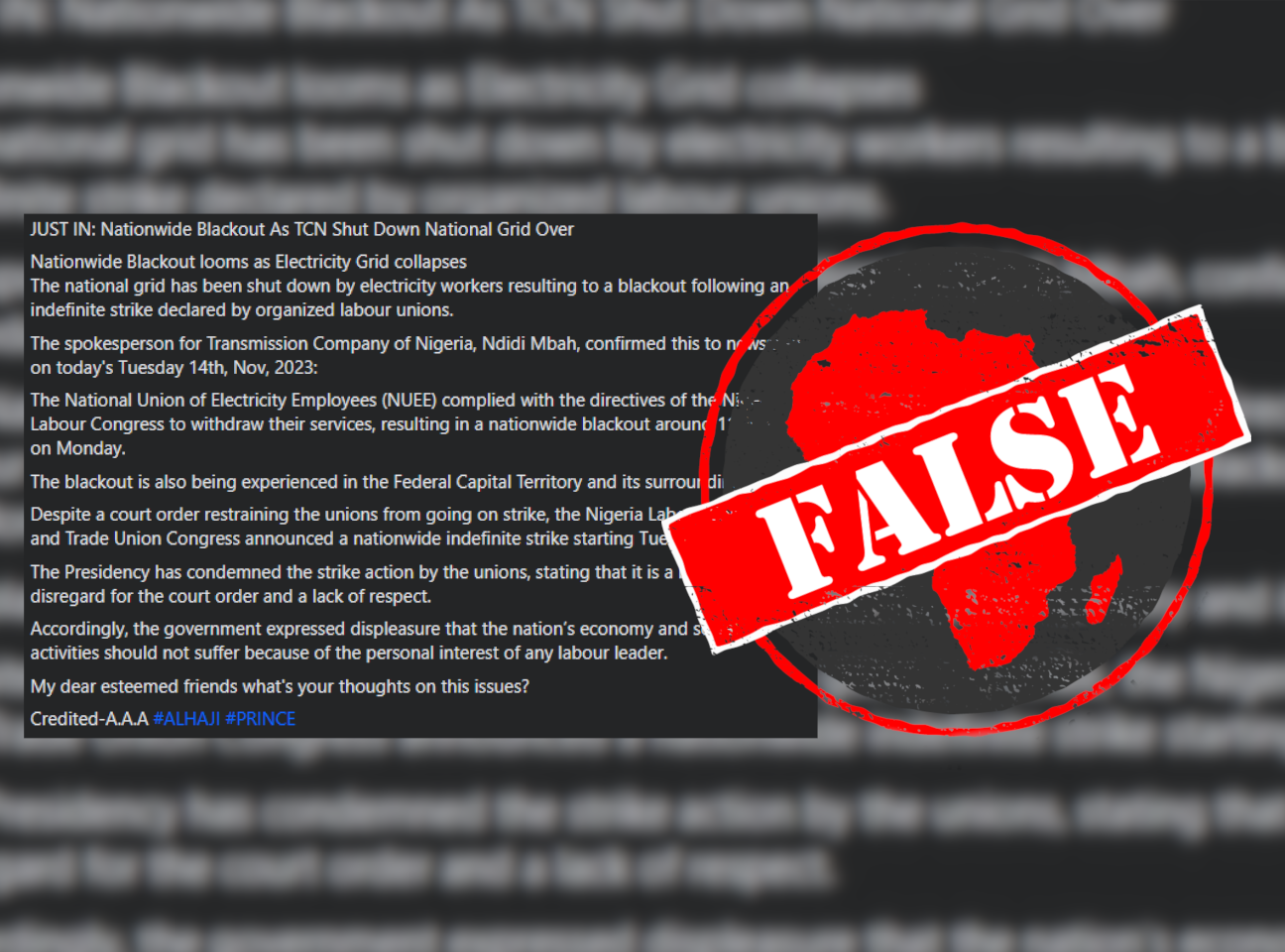IN SHORT: Unionists in Nigeria began a nationwide strike on 14 November 2023. But rumours that the strike would cause the national power grid to go down were false, the state electricity company said.
The Nigeria Labour Congress, the Trade Union Congress and their affiliates went on a nationwide strike on 14 November 2023, despite a court order restraining them from taking industrial action.
The strike followed an assault on the chair of the National Labour Congress, Joe Ajaero, during a protest in Imo state in southeastern Nigeria on 1 November over unpaid salaries and other issues.
A post shared on Facebook in Nigeria on 14 November claimed that the country’s grid was set to collapse as unionised workers in the electricity sector withdrew their labour.
“JUST IN: Nationwide Blackout As TCN Shut Down National Grid Over,” begins the message.
TCN is the Transmission Company of Nigeria, which – in addition to operating the national grid – transmits and helps distribute electricity from power generation companies.
The post also claimed that a national blackout had occurred on 13 November at “around 11:20am”.
The post adds: “The national grid has been shut down by electricity workers resulting to a blackout following an indefinite strike declared by organized labour unions.”
The same claim appeared on Facebook here, here, here and here.
But did workers at the transmission company shut down the country's power supply, threatening the national grid? We took a closer look.

‘False and totally misleading’
The transmission company denied this in a statement on its official X (the social media platform formerly known as Twitter) account on 14 November, saying, in part: “We hereby note that the nation’s grid is intact and supplying bulk electricity to distribution load centers nationwide.”
The company also dismissed a media report that one of its executives had signalled a national blackout due to the strike, saying this was “false and totally misleading” and could cause panic.
The country has not experienced a national blackout around 14 November.
Republish our content for free
For publishers: what to do if your post is rated false
A fact-checker has rated your Facebook or Instagram post as “false”, “altered”, “partly false” or “missing context”. This could have serious consequences. What do you do?
Click on our guide for the steps you should follow.
Publishers guideAfrica Check teams up with Facebook
Africa Check is a partner in Meta's third-party fact-checking programme to help stop the spread of false information on social media.
The content we rate as “false” will be downgraded on Facebook and Instagram. This means fewer people will see it.
You can also help identify false information on Facebook. This guide explains how.


Add new comment